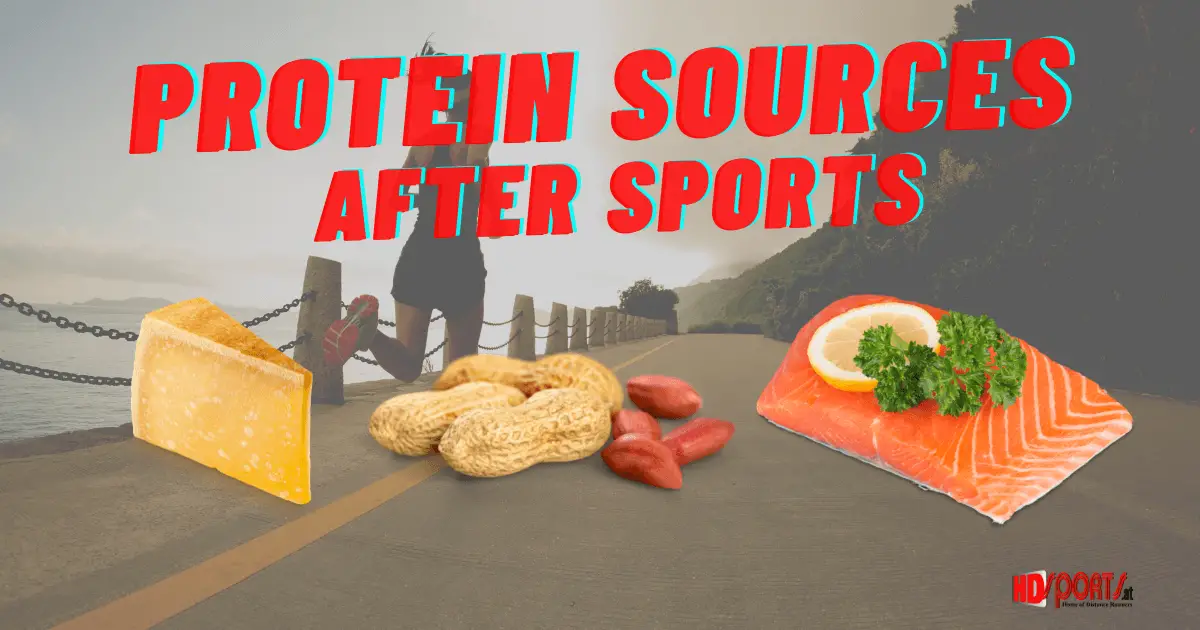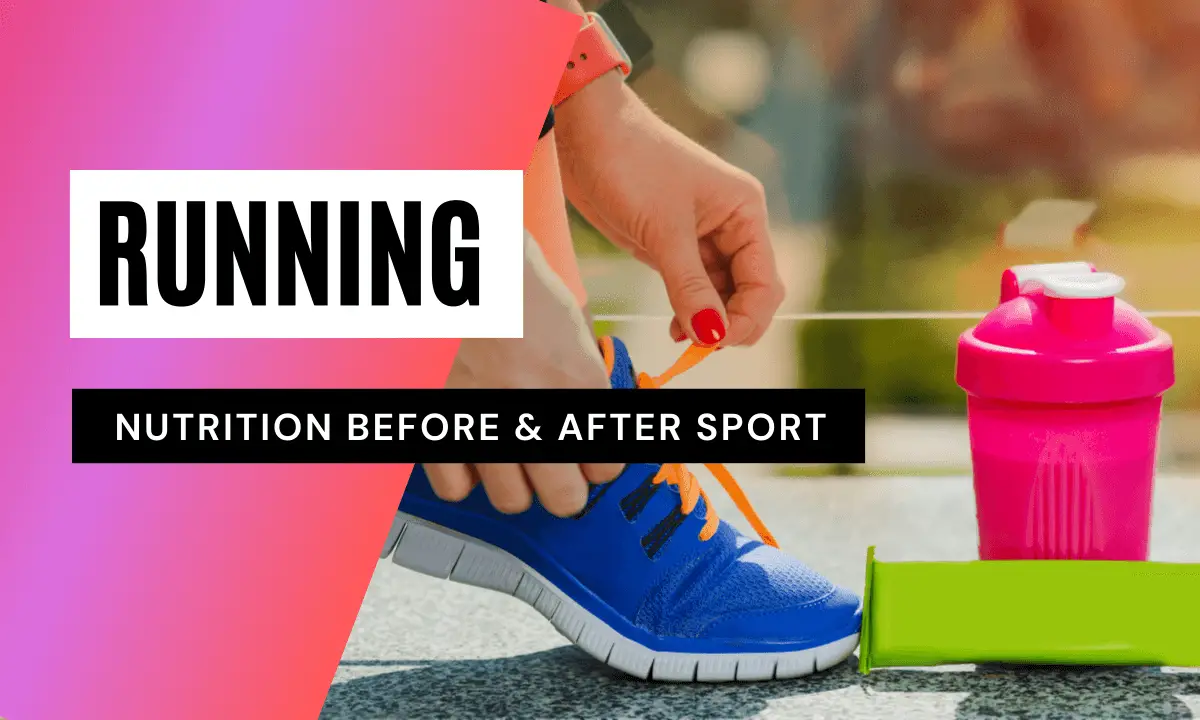Nutrition can have a significant impact on running performance.
That's why runners should think about their nutrition in the hours before and after training. In the case of very long endurance units, such as a marathon, energy intake during exercise also plays an important role.
We answer in this article, the most important questions about nutrition before running and after running.
What should I eat and drink before running?
The answer to this question depends on the intensity and length of the running session. The more intense and the longer the running session, the more the pre-sport nutrition can affect performance.
Eating before running
As a general rule, however, when running, the last major meal should always be consumed no later than three hours before the start of the activity. For shorter base runs and good digestion, a slightly shorter time span may be possible. Of course, the time span also depends on individual tolerance. It should be noted, however, that foods that are difficult to digest should be avoided as much as possible during the last large meal before exercise. These include foods with fiber or pasta products, especially if they are whole grain products. Which foods are ideal is again highly dependent on the individual.
In the last 3 hours before the run, smaller snacks are allowed. This includes a banana or toast (not wholemeal) with a little honey. A banana an hour before exercise or even half an hour before exercise usually does not negatively affect performance.
Drinking before sports
A little less planning is needed when it comes to fluids. Drinking can still be done just before running. However, carbonated drinks should be avoided in the last 1 to 2 hours before running. Because on the one hand this could lead to the so-called belching (slow drinking can reduce this problem), on the other hand drinks with a lot of carbonic acid are very often the cause of side stitching during sports. And this annoying pain in the area of the liver or spleen inevitably leads to a loss of speed. During easy basic runs, you can still manage quite well, but during tempo runs or competitions, the risk of missing the desired training or competition goal is very high.
The shorter the running sessions are, the less important it is what we drink before the sport. Water is sufficient in this case. In the case of intense heat, electrolyte drinks or sports drinks with some potassium are ideal. Only water could even lead to water intoxication in the worst case (however, the amount of water must be very high). Electrolyte drinks or fruit juices (as long as they are well tolerated) have also been proven to be effective for very long endurance units before sports.
Our recommendation
- Last large meal: 3 hours before the run - no or little dietary fiber
- Drinking in the last 3 hours before the sport: water with one or two pinches of salt or electrolyte drinks or fruit juices. No carbonated drinks
What should I eat and drink after running?

As with pre-sport nutrition, post-run nutrition depends on the intensity and length of the sport session. For long and intense endurance units, high priority must be given to nutrition after exercise. In general, carbohydrates with some protein should then be given priority in the first 30 minutes after the sport. In the hours following exercise, it is worthwhile to continue regular intake of proteins and carbohydrates.
Eating after running
1 g of carbohydrates per kilogram of body weight
During casual basic runs of up to one hour, we do not need huge amounts of carbohydrates and proteins. On the other hand, after physically demanding sessions (interval training, tempo runs, long endurance runs), we should deal with nutrition as soon as possible after running.
The 25 most beautiful marathons in the world
The topic around the right timing of carbohydrate intake is interesting. There are studies that found a positive correlation with carbohydrate intake as soon as possible after exercise and the athlete's recovery. Other studies, in turn, indicated that in the first hours after exercise, the intake of small amounts of carbohydrates has the same effect as a fast carbohydrate intake directly after exercise.
However, after intense or long endurance sessions, we recommend an initial carbohydrate intake within the first 30 minutes after exercise. This method has also been adopted by many top athletes, such as multiple Olympic champion Mo Farah, who swears by a rapid carbohydrate intake directly after intense exercise. During this period, the body can better absorb the carbohydrates, according to studies. Ideally, a few proteins should also be added, because these not only ensure a more efficient absorption of the carbohydrates in connection with the carbohydrates, but also serve as building material for our muscles or accelerate the repair process of destroyed muscle structures after the sport. A ratio of 3:1 to 4:1 carbohydrates to proteins is recommended. Carbohydrates should be around 1 gram per kilogram of body weight.
Drinking after running
A glass of cola contains 25 grams of carbohydrates
Of course, we can also get the necessary carbohydrates and proteins after exercise by drinking fluids. Again, electrolyte drinks are an efficient source of energy. But also sweetened soft drinks are now allowed. Cola contains about per 100 ml a little more than 10 grams of carbohydrates. If we drink a glass of about 250 ml, we have supplied our body with a little more than 25 grams of carbohydrates. In this case, a 75-kilogram runner would have already reached one third of the required carbohydrates. Other juices, such as orange juice or smoothies, also have similar nutritional values to cola.
Unfortunately, such drinks contain no or almost no protein. In this case, special sports powders that contain both carbohydrates and proteins (ideally in a 3:1 ratio) could help. Milk would also be a solution, although it contains only 3.4 grams of protein per 100 grams (and 5 grams of carbohydrates). Alternative and simple snacks with lots of protein would be peanuts (26% protein), low-fat curd cheese (13% protein), oatmeal (13% protein), Parmesan cheese (35% protein), almonds (21% protein) or salmon (20% protein).
More running: Calculate performance potential over 5 km, 10 km, half marathon and marathon

![Running in Hawaii - All Races 2026 [Running Calendar] Hawaii Running Race Calendar](/images/thumbnails/raxo/tb-w364-h121-cut-int-096354f441ef0bd465f96ab1982ddb50.webp)

Kommentar schreiben